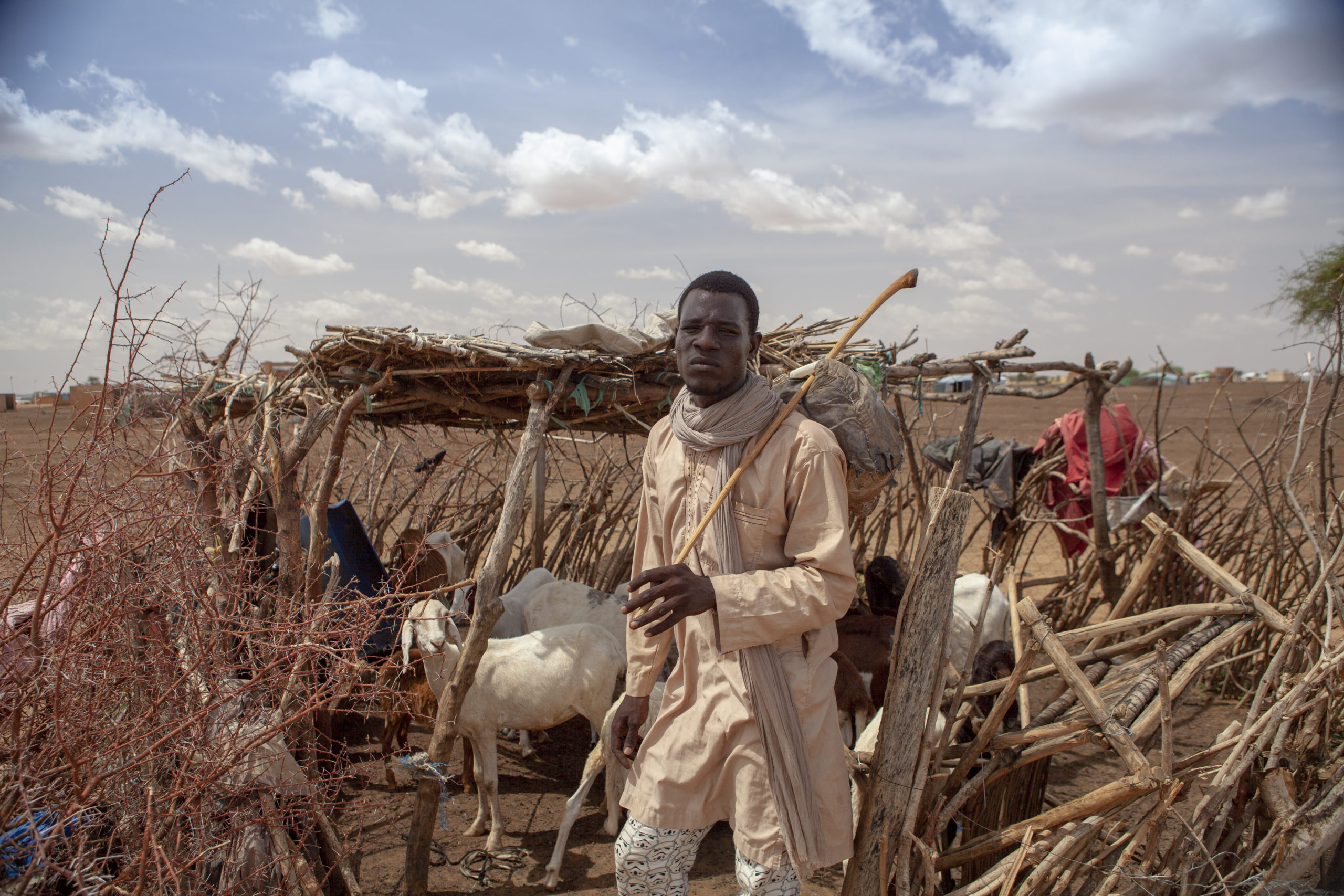Sahel Emergency
Violence in the Sahel: Over 5 million people forcibly displaced
Photo: ©UNHCR/Sylvain Cherkaoui
UNHCR is assisting people forced to flee across Burkina Faso, Mali, the Niger, Mauritania, and surrounding coastal countries.
Please help these families find safety.

Shelter
to help protect families fleeing violence
Protection
to provide medical and psychosocial assistance to the survivors of sexual and gender-based violence

Education
to construct and improve education facilities
What’s happening in the Sahel region?
The Sahel region is undergoing a worsening crisis characterized by escalating forced displacement and increased protection needs. Almost 5 million people were forcibly displaced across Burkina Faso, Mali, the Niger, Mauritania, and the coastal countries of Benin, Côte d’Ivoire, Ghana, and Togo as of August 2024 – an increase of 25% since 2020. In the first half of 2024 alone, approximately 130,000 Malians sought refuge in Mauritania. Over 150,000 people fleeing Burkina Faso sought asylum in coastal countries since 2021. In Burkina Faso, with limited opportunities for return, the number of IDPs may increase to 3.65 million by the end of 2025.
Political instability, conflict, violence, and food insecurity are the key drivers of displacement across the Sahel region, with the effects of climate change further intensifying tensions over scarce resources. UNHCR will remain present in the Sahel, providing protection and assistance to displaced populations and strengthening the resilience of host communities to promote social cohesion. Neighbouring countries, despite their fragilities and security concerns, are keeping their borders open and allowing access to asylum and overstretched basic services.
What is UNHCR doing to help?
In this challenging environment, UNHCR is working to meet the changing needs of displaced populations in a context of insecurity and constrained access, while strengthening partnerships with national and local humanitarian actors, as well as with civil society organizations, who are often the first responders.
UNHCR is delivering a protection-centred response that includes registration, access to asylum, gender-based violence prevention, child protection, education, provision of documentation (including for those at risk of statelessness), and the provision of shelter and core relief items.
In the context of climate change, environmental sustainability takes a central role in UNHCR’s interventions via climate-smart agriculture, renewable energy and the integration of climate into risk analysis and assessment.
How can you help?
When you support UNHCR’s projects such as the Central Sahel Emergency, you are contributing directly to providing emergency relief to refugees and internally displaced persons in the Central Sahel region who need it most. Your generous gift enables UNHCR to provide refugees fleeing violence in the Central Sahel with the critical humanitarian resources they urgently require. We are on the ground providing immediate humanitarian aid to those arriving, departing or already currently living in Burkina Faso, Niger and Mali.
Where can I access the latest data and reports?
Sahel Operation—latest reports on UNHCR relief work in the Sahel+ region overall.
Did you know that six out of ten IDPs in the three central Sahel countries are in Burkina Faso?

Attayoub is 28 years old, he is a shepherd and lives in the Goudoubo camp in Burkina Faso.
Attayoub is Touareg. Attayoub fled with his brother away from Mali and later realised he was in Burkina Faso. His parents stayed in Mali nearby Gao. He has been living in the camp since 2012. Attayoub got married in the camp and has 2 daughters. His oldest daughter is called Bushra. His wife is pregnant with a third child. Attayoub’s mother joined him 3 years ago to also live safely at the camp. His father, however, is still working in Gao. Attayoub didn’t see his father since 2012 and has not been able to speak to him in the last 3 years because of poor phone connections. He sometimes gets messages via the market.
Attayoub is proud of what he has achieved and wants to show his father. Attayoub has 16 goats and sheep, which help him to support his family. The cattle is like a bank to him. Attayoub is happy to live in safety, where he can support his family can sleep safely at night. One day he hopes to return home, but his biggest wish is for his father to join the rest of the family in the camp as soon as possible.
Photo: ©UNHCR/Jerry de Mars
Donate Today
Please help refugee families and internally displaced people in the Central Sahel region.
Donate Today
Please help refugee families and internally displaced people in the Central Sahel region.


